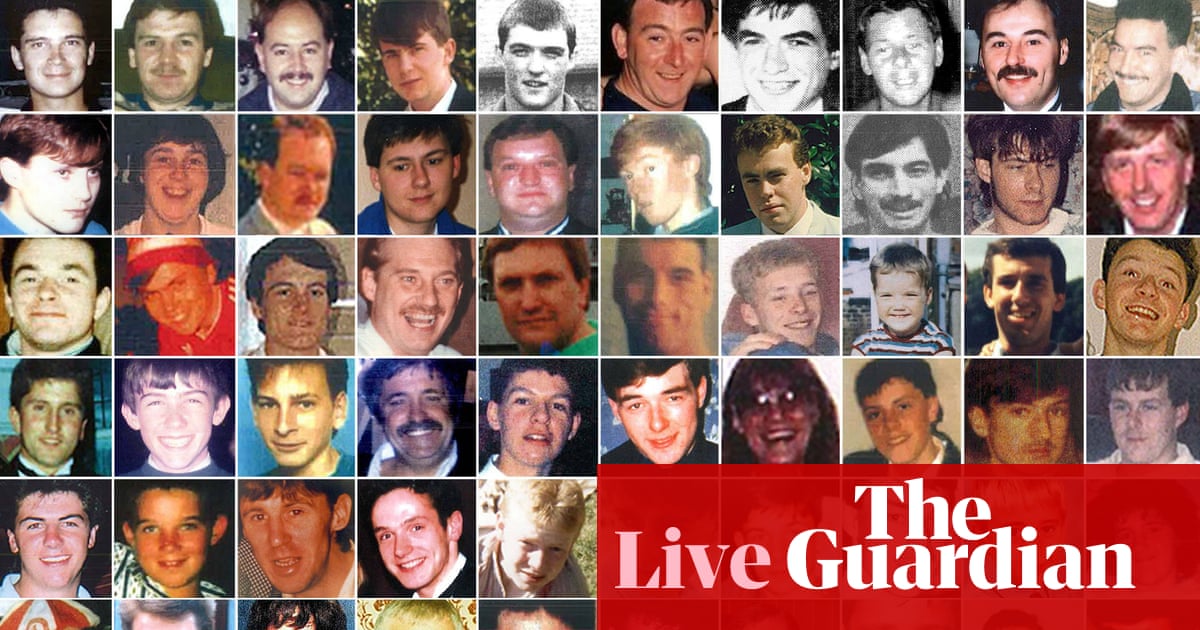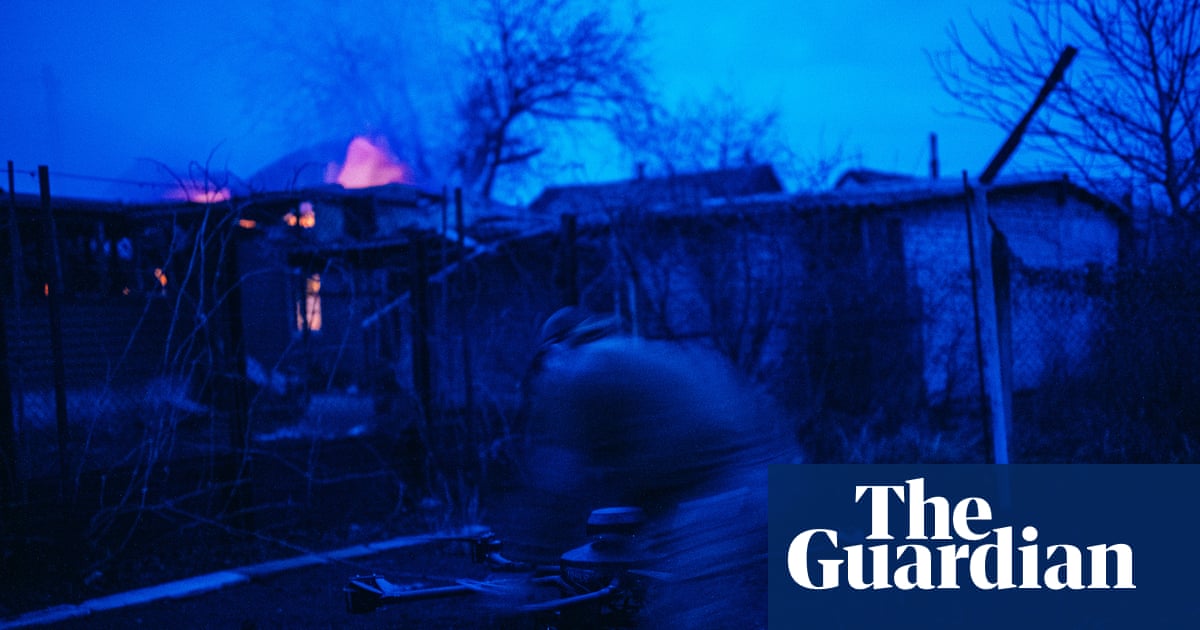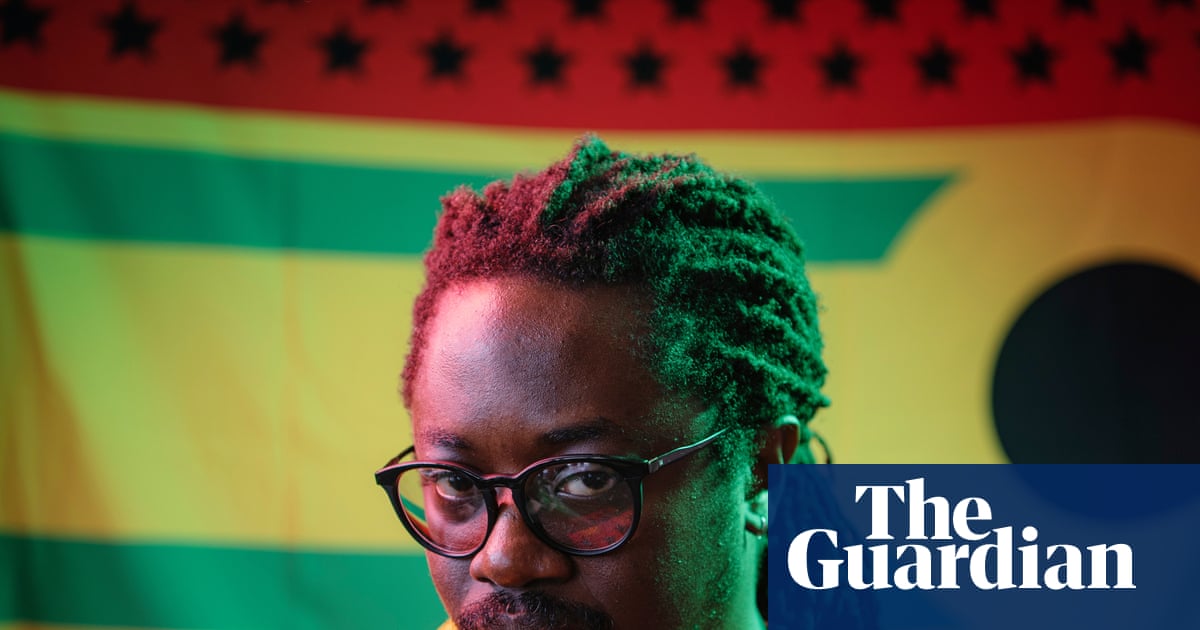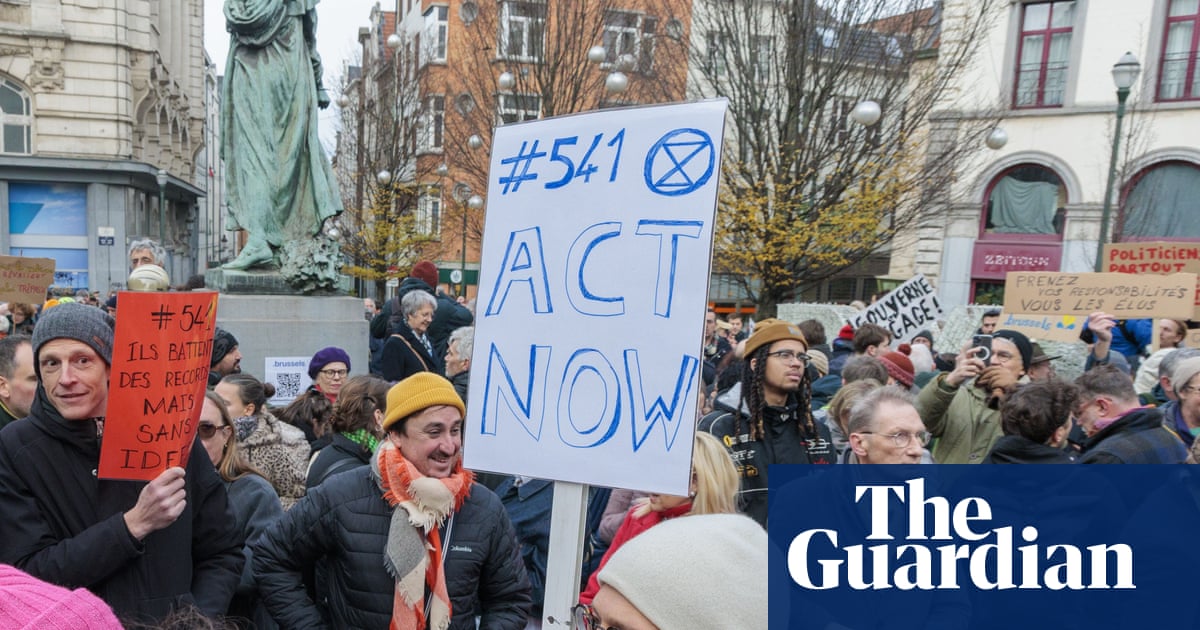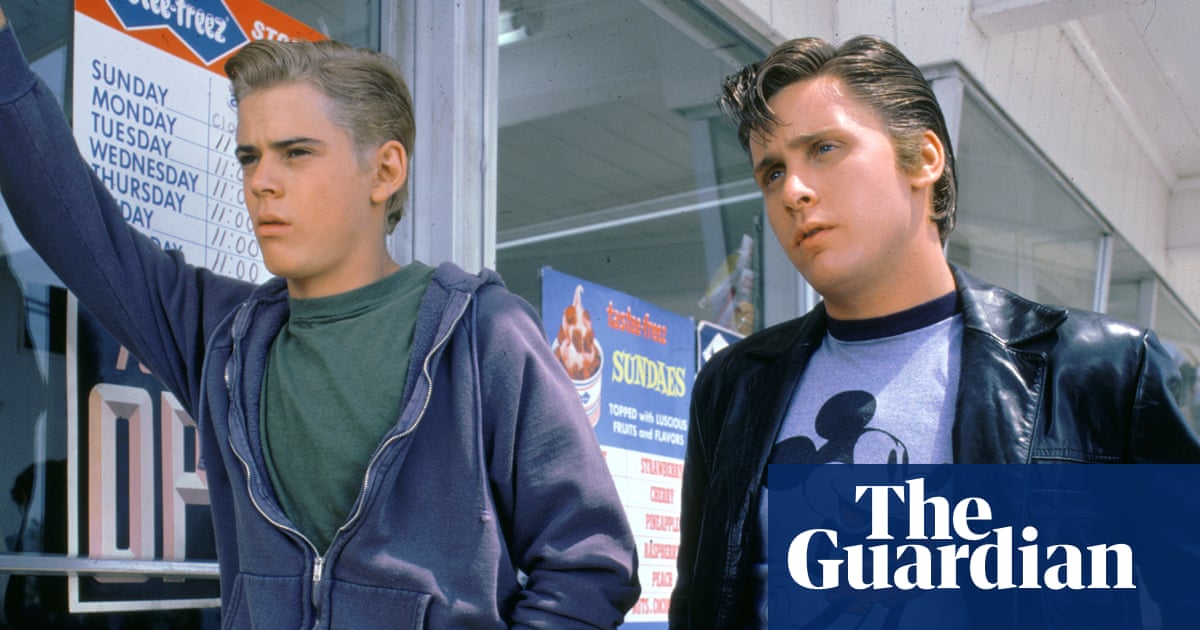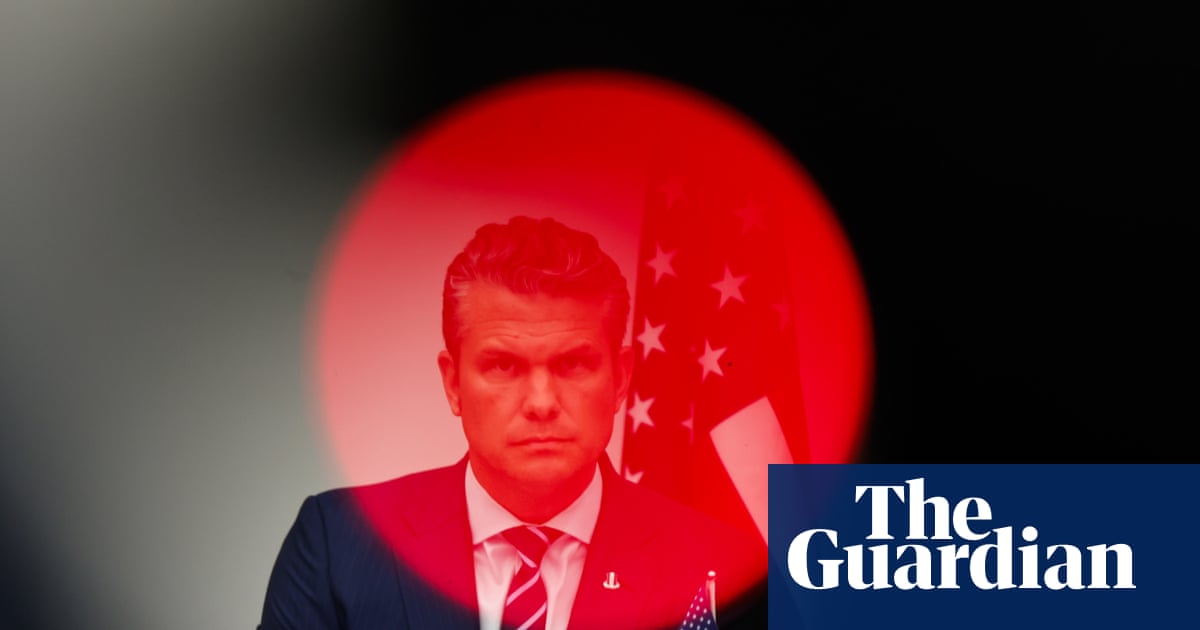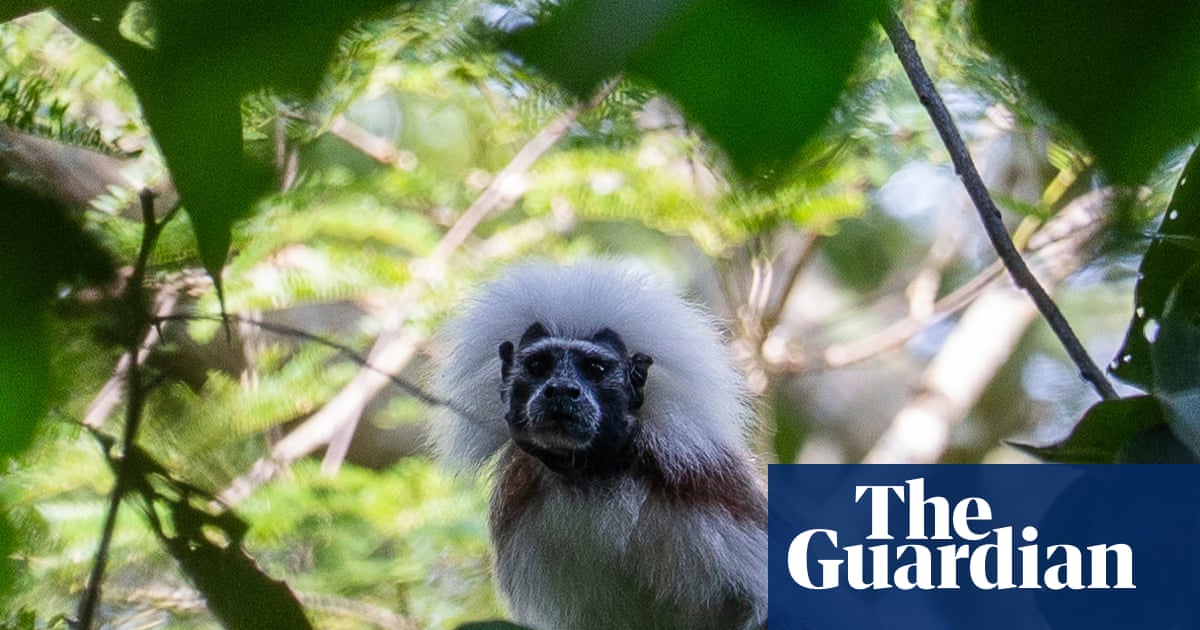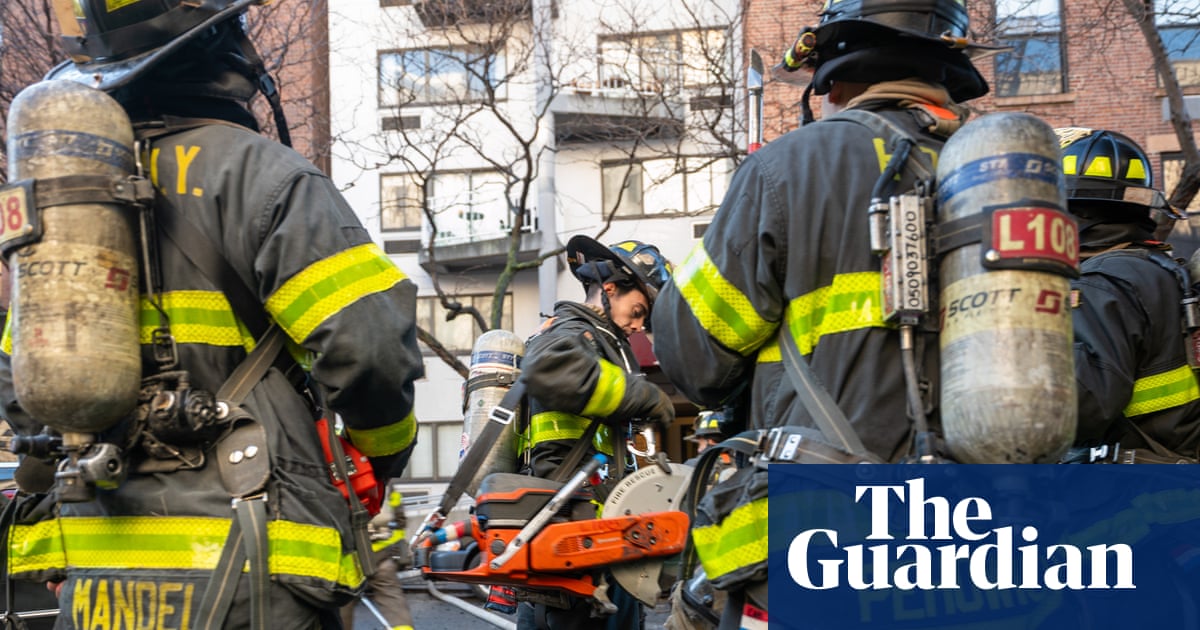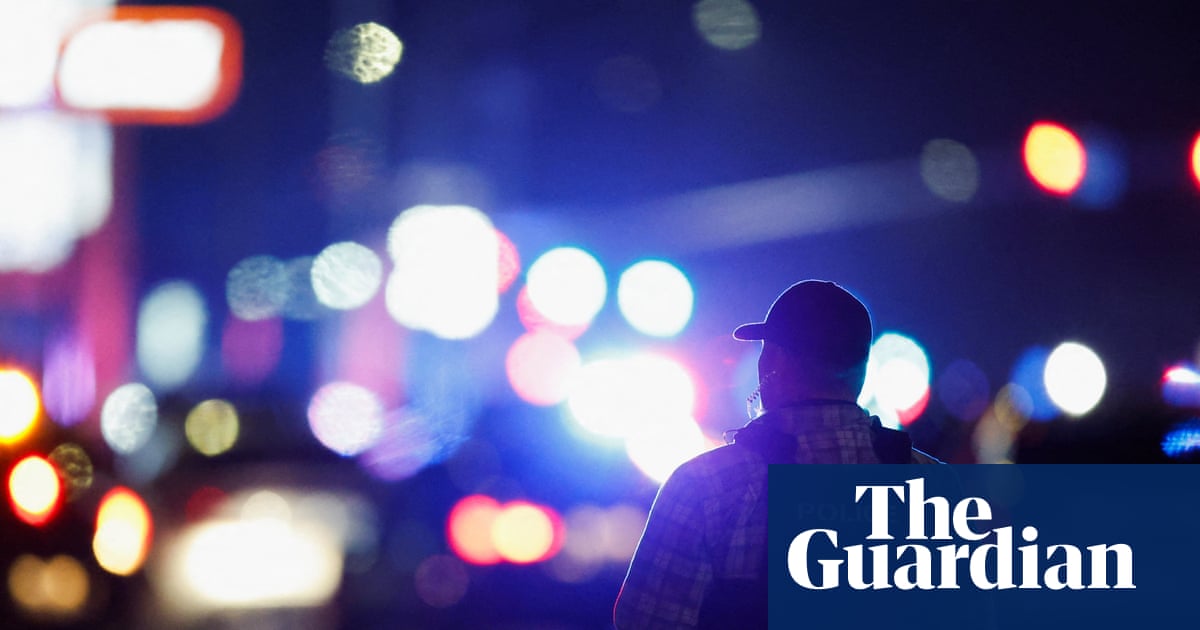By 1989, Wendy James and her pop-rock band Transvision Vamp had reached the UK No 1 spot with their second album, two of their singles had been in the top five, and James, with her peroxide blond hair and fondness for lingerie and leather, had crossed the pop-rock divide as a cover star for both Smash Hits and NME. “I thought I was going to be bigger than Madonna,” she says, “and I was pretty sure I was going to win an Oscar.”
Instead, everything unravelled within two years: the band split up after their third album was poorly received, and James vanished from the public eye for a decade. She later built a solo career, and hasn’t wanted to revisit the past. “Everyone fucking reforms,” she says, sat in a cafe in Toulouse close to where she has lived for the past five years, wearing a black velvet jacket with that blond hair in a high messy bun.
But Transvision Vamp have indeed reformed for their first tour in three decades, due to begin in Australia in February. She didn’t have a bass player for this autumn’s solo tour, so she asked former Transvision Vamp bassist Dave Parsons if he’d do it. Though the other members aren’t on board, the pair have now decided to reclaim the band name. “Somehow it didn’t bother me any more,” James says of that name. “I just said yes – it could be the start of a great adventure.”
Adopted at the age of one and raised in a middle-class family in Brighton, James began her musical adventures by buying the Sex Pistols’ Never Mind the Bollocks aged 10, and at 14 she went to see the Clash at the Brighton Centre. “I was up at the barrier,” she recalls. “I remember the passion and the power – it felt like freedom.” She left home on her 16th birthday with £100 and a toothbrush, “absolutely fearless, ready for all of it”.
James met guitarist Nick Christian Sayer in a Brighton bar in 1986 and they formed Transvision Vamp the following year. They marched into the offices of EMI and demanded to see Dave Ambrose, the executive who had signed Sex Pistols. “We said: ‘We’re going to be the biggest band in the world, give us a deal.’ It wouldn’t happen now, but the lady at the front desk ushered us up to his room.” James played Ambrose their demo and he gave them five days in a studio to flesh the songs out, including their first single, Revolution Baby. The band were soon gathered round the receptionist’s radio to hear the song’s first play on Radio 1 – “A mind-blowing concept: millions of other people hearing it at exactly the same time.”
Fusing Bolan with Blondie by way of the New York Dolls and Sex Pistols, the band scored hits including I Want Your Love, Baby I Don’t Care and Landslide of Love, as well as Brit award nominations and regular slots on Top of the Pops. James the third “most fanciable female” in Smash Hits’ 1989 readers’ poll, but the Face dubbed her “the woman everybody loves to hate” and Time Out included her in its 1990 Hated 100 list. On television, meanwhile, she was often patronised by older male interviewers. The BBC’s Frank Bough “came at me a few times”, she says, referring to his derisive tone. “It made me think: ‘Who the fuck are you?’”
When James casually admitted on the BBC children’s show Going Live that she was not wearing underwear, she was hauled up to the show’s producers. “I was told to apologise if I wanted to ever go back on,” she remembers, “so I said: ‘I’m so sorry if this disturbed your children’s broadcasting, but the kids didn’t care.’” At the opposite end of the spectrum, she was contacted by Jean-Jacques Beineix, director of cult film Betty Blue (who died in 2022). James flew to meet him for lunch. “That was a little bit lewd,” she says. “He wanted to know how willing I was to be naked. In almost every scene. It was more the Harvey Weinstein type of audition.”
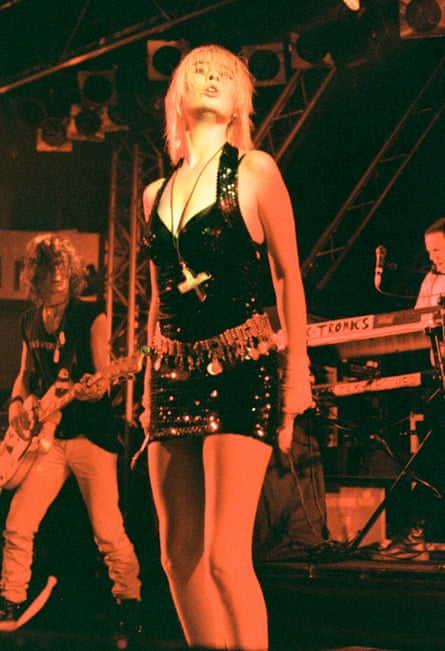
Transvision Vamp remained “part of the zeitgeist at the end of the 80s and into 1991”, she says. As well as topping the UK charts, they broke into the Australian Top 10 and gained traction in the US. “But then grunge was coming, and east coast hip-hop, and rave.” Their label was so unimpressed with third album Little Magnets Versus the Bubble of Babble that it was not even released in the UK.
James moved to the US to pursue a solo career. One day she was at the bar of the Sunset Marquis hotel in Hollywood when she spotted Pete Thomas, drummer with Elvis Costello, and asked if Costello might be interested in writing a song for her. Thomas suggested she write him a letter, which she did on headed hotel notepaper. “When I got back to England, there was a cassette popped through my mailbox.”
This was Now Ain’t the Time for Your Tears, a whole album that Costello and his then partner, former Pogues bassist Caitlín O’Riordan, had written together for James in a single weekend. David Bailey was hired to shoot the cover portrait. “I was massive, and Elvis was one of the most famous musicians in rock’n’roll: what’s not to like?” Her record label, she says, “thought we would just ride this baby straight to the bank”. But it only reached No 43 in the charts. What went wrong? “The content of the music,” she says.
She mentions Puppet Girl, which starts with the lines: “Hey there little puppet girl, how’d you learn to talk that way? / Hey there little puppet girl, who put the mouth in all the things you say?” Costello, she claims, “definitely had a concept of me as this silly little blond thing that’s trying to make it”. She accuses him of writing “a male cliche of what idiots young female pop stars are. It was quite nasty – he was asking me to sing derogatory stuff about myself, or this concept of myself.”
I ask Costello for his take. He says the songs were “clearly written as a satire of the way contemptuous pop managers and moguls regard pop stars, particularly young women … It was a role to inhabit, in which the star was mocking tormentors by going to even greater extremes, making fun of her hit parade rivals and reading her own bad reviews.” He says the production on Now Ain’t the Time for Your Tears ended up having “all the punch of a sock full of cold rice pudding”, but “Ms James’s excellent delivery was the album’s sole redeeming feature … I’ve only ever met Ms James once and then very briefly but I thought she must by now have developed a sense of humour about this business that we call show. I fear I might have been wrong.”
After the commercial disappointment of Now Ain’t the Time for Your Tears, James retreated from releasing music. When she wasn’t having dinner with Bob Dylan and Van Morrison (“Van and I were good comrades for a while”) or hanging out with Bono in Dublin (“He was very protective and encouraging during that Elvis period”), she was living in Ladbroke Grove with her then boyfriend, ex-Clash guitarist Mick Jones.
James did not release any music for a decade: were these her wilderness years? “I like to think of them as my industrious years,” she counters. “I was learning how to write songs. Normally you would do that as a teenager in your bedroom and then make it, but I did it the other way round.” She returned in 2004, releasing two albums with the group Racine and then four solo albums including 2016’s The Price of the Ticket, for which her backing band included a Pistol (Glen Matlock), two Stooges (Steve Mackay and James Williamson), a Bad Seed (James Sclavunos) and Lenny Kaye, a member of the Patti Smith Group. “I had known Glen since I was a teenager, I met James Sclavunos in a bar at the Bowery Hotel, Lenny lived two streets from me in New York and I contacted James Williamson on Facebook – all people that caused me to want to be a musician in the first place.”
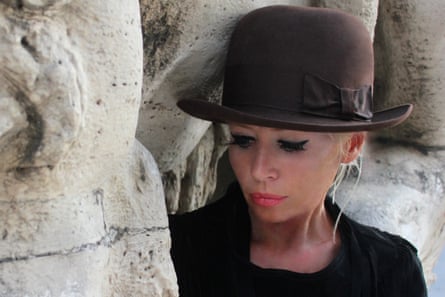
After 17 years in New York, James went to France to housesit for a friend, “and ended up staying. It was totally random and not planned at all.”
She says she sees herself in Gwen Stefani, and “I think Miley Cyrus has had a look [at me]. There’s a continuous path of kind of spunky, independently minded, fearless young females that are warriors.” She speaks with pride about her solo albums, and while they haven’t had the impact of Transvision Vamp, “I don’t miss the clamour of people’s adulation. The only difference [not being famous] has made is that I have to book my own flights and find my own way to the airport.”
There will be plenty of that with tour dates in Australia and Spain already confirmed for next year, more countries being planned, and maybe even another album. Joining the reformed Transvision Vamp alongside her and Parsons are Sclavunos and Thurston Moore collaborator Alex Ward, and James says she’s not in it for the money: “I’m not the wealthiest person in the world, but I’m by no means the poorest either. This was completely unplanned but I have great hopes for it. In the old days, my pinnacle was always to play Madison Square Garden, but this time, who knows. The potential is massive. All I know is that whatever the size of venue, I am going to walk off stage feeling exhausted, exhilarated and knowing I gave it everything.”

 2 months ago
49
2 months ago
49
